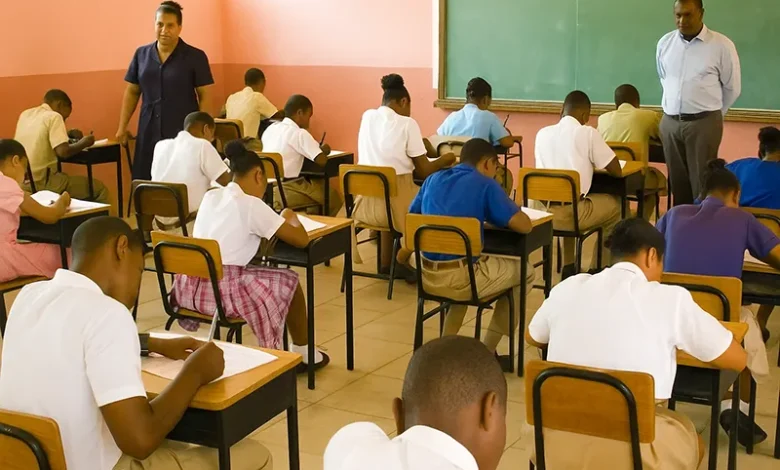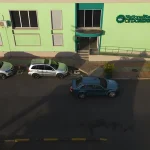Caribbean Secondary Education Certificate (CSEC) in Dominica

The Caribbean Secondary Education Certificate (CSEC) in Dominica represents a crucial academic milestone for students completing their five-year secondary school journey. Introduced in the 1970s through the Caribbean Examinations Council (CXC), CSEC continues to shape national education policy, influence scholarship access, and impact tertiary education opportunities. Thousands of Dominican students have taken these exams, and the performance trends offer insights into educational strengths and areas requiring policy action.
Historical Development and Institutional Integration
Since Dominica joined CXC at its inception in 1972, CSEC examinations have gradually replaced the UK-based O-Level system. By the 1980s, all public and most private secondary institutions had transitioned to the CSEC framework. The Ministry of Education fully integrated the exam system into the national curriculum by 1985, ensuring alignment with regional educational standards. Dominica’s participation helped influence syllabus design in subjects like Social Studies, English, and Integrated Science, contributing to the Caribbean’s shared academic development.
Performance Trends Over the Decades
CSEC results in Dominica over the last 40 years reflect notable patterns. In the 1990s and early 2000s, the country’s pass rates in English A, Biology, Chemistry, and Agricultural Science were well above the regional average. However, mathematics persistently showed pass rates below 50%.
During the 2010s, especially between 2013 and 2019, the national average pass rate for English A ranged from 79% to 84%. Science subjects like Biology and Chemistry saw steady performances between 75% and 88%. By contrast, mathematics dropped as low as 32% in 2015 before recovering to 38% by 2019.
In 2023, English A continued to perform well with an 83.1% pass rate, while mathematics lagged at 36.2%. These figures prompted renewed concern from educators, leading to the rollout of intervention programmes. Despite subject-specific challenges, Dominica’s overall pass rate across CSEC subjects remained among the top five in the Eastern Caribbean.
Focus Areas and Subject Performance
The Ministry of Education has continued to monitor and adjust support based on subject performance. Key areas of focus include:
- High-performing subjects: English A, Chemistry, Physics, Human & Social Biology
- Underperforming subjects: Mathematics, Principles of Accounts, Spanish
These subjects determine eligibility for sixth form studies or CAPE, as well as scholarships and bursary qualification.
Government Interventions and Educational Policy
The government has implemented several targeted strategies to address gaps in performance and improve the quality of instruction:
- Introduction of numeracy specialists and training for math teachers
- Use of diagnostic tools and formative assessments at lower secondary levels
- After-school remediation programmes supported by the Ministry of Education
- Revision of school textbooks and CSEC-oriented teaching guides
These initiatives are aligned with the Education Sector Plan 2021-2025, which prioritizes equity, quality, and curriculum relevance.
Access, Scholarships, and Equity
CSEC results also directly impact access to scholarships, bursaries, and educational progression. The national scholarship programme annually awards funding to top-performing CSEC candidates based on results across a minimum of six subjects. These awards, critical to social mobility, support students entering Dominica State College, the University of the West Indies, and other regional institutions.
CSEC also determines eligibility for CAPE studies in Dominica, the foundation for those wishing to pursue university education. Equity measures ensure that rural schools receive additional teaching resources and teacher training to bridge the performance gap.
National Pass Rates in Core Subjects (2010–2024)
- English A: 79% to 84% (steady, consistently high)
- Biology & Chemistry: 75% to 88% (strong)
- Mathematics: 32% to 42% (low, targeted for reform)
Institutional Support Structures
To sustain performance growth and reduce disparities, Dominica has invested in:
- Curriculum & Measurement Unit for exam alignment
- CSEC teacher workshops through the Dominica Association of Teachers
- Continuous assessment pilots in lower forms
- Student support services focused on learning disabilities
These structures support a wider goal of preparing students for the demands of the global economy.
The Road Ahead
As Dominica continues to modernize its education system, CSEC remains the cornerstone of academic and professional development. Investments in teacher training, digital tools, and updated assessment methods aim to improve student outcomes, particularly in mathematics and language arts. There is also increasing focus on incorporating technical and vocational subjects such as Electrical Installation and Building Technology into the CSEC stream, aligning with national workforce needs.
Through these efforts, CSEC in Dominica is evolving from a traditional examination system to an integrated tool for education development, equity promotion, and economic planning.




